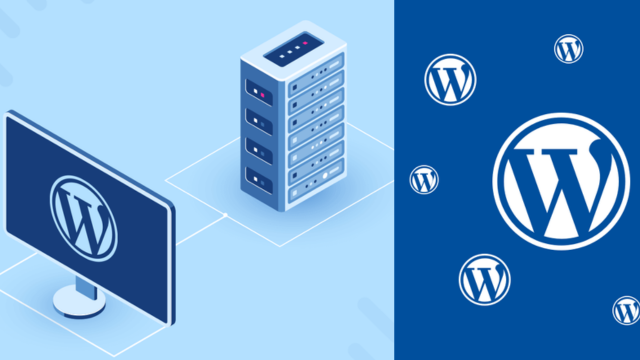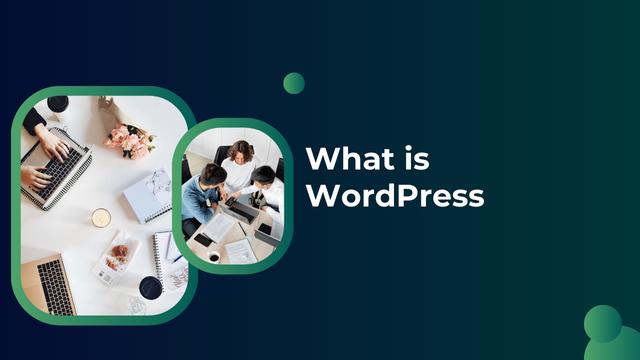What is WordPress
WordPress is an open-source CMS that is coded in PHP, coupled with a MySQL or MariaDB database. It has some major features like a plugin architecture and template system that can be utilized for the custom design and functionality of the websites.There are two major versions of WordPress: WordPress.org. A self-hosted platform; gives you the full control of your website. It needs to purchase hosting and a domain name to utilize.
WordPress.com is managed hosting, which means fewer customization options and more about keeping it simple and convenient.
Why Choose WordPress
WordPress is created to be very intuitive, even for people with no technical background. It has a very straightforward dashboard, enabling users to create and edit pages or posts.
Uploading and managing all the media files, like images and videos.
Personalize your website design and functionality with a few clicks.
It does not require sophisticated coding skills so that it is accessible to everyone.WordPress Essentials Themes: Themes represent the layout of your website. WordPress has free and paid themes depending on industries and purposes Plugins: These plugins expand the functionality of WordPress.
Easy-to-Use Interface
WordPress is user-friendly for non-technical users; hence, it is good even for a beginner without a technical background. Its interface is easy to follow in creating and editing the pages or posts, and one can upload and manage their media files, images, and videos. Users can design and change the website design and functionality with few clicks. It does not require extensive coding skills to operate.
2. Highly Customizable
WordPress provides unparalleled levels of customizability in the way it uses themes and plugins.
Themes: There are thousands of free and premium themes so that you can give a unique look to your website according to your brand or your purpose.
Plugins: As there are more than 60,000 plugins in the official directory, you can get features like SEO tools, E-commerce functionality, contact form, etc., without coding a single line.
Economical
Having a website on WordPress can be extremely inexpensive:
WordPress itself is free to use.
Many hosting companies have budget-friendly WordPress-specific packages.
Free themes and plugins are available, with additional features available through the paid versions.
This is why WordPress is a perfect choice for startups, small businesses, and budgetary individuals.
SEO-friendly
WordPress is built with SEO in mind. Key features that enhance your site’s visibility include:
Clean and customizable URLs (permalinks).
Mobile-friendly, responsive designs.
Integration with popular SEO plugins like Yoast SEO or Rank Math, which give detailed optimization tips for your content.
Scalability
Whether you’re creating a little personal blog or an important corporation website, WordPress has flexibility in scale. One begins simple and can easily develop with the business through expanding or adding more pages or content.
Integrating advanced functions such as membership systems or ecommerce.
Community and Support
You will find countless tutorials, forums, and blogs that will help you troubleshoot and learn. Developers frequently develop and update the themes and plugins. The WordPress team constantly updates the software to improve security and performance.
Security Features
While no site is totally secure, WordPress ensures strong protection through:
Constant updates to the core software.
Security plugins such as Wordfence and Sucuri, which add further layers of defense.
Best practices for the user, including strong password enforcement and two-factor authentication.
E-Commerce Ready
With plugins like WooCommerce, WordPress makes creating an online store easy. Millions of e-commerce websites run on WooCommerce, which provides:
Secure payment gateways.
Inventory management.
Customizable product pages and shipping options.
Freedom and Property
You’re not tied to a particular hosting provider or platform. You have control over your site’s files, data, and customization. There are no restrictions on monetizing or placing ads.

How to install wordpress
Click Install:
Follow the on-screen instructions, which generally include the following: Selecting a domain name for the installation. Entering basic site details such as site title, admin username, and password. Select a directory (leave blank if installing on the root domain, e.g., example.com). Final Installation: Click the “Install” button. The system will install WordPress for you.
involves downloading WordPress files and setting up a database. Steps Download WordPress:
Upload WordPress Files to Your Server:
Create a Database: Login to your hosting control panel (cPanel or similar).
Open it up in a text editor, update the following lines to use your database information php Copy code
the WordPress Installation Script:
Go to yourdomain.com to initiate the installation wizard. Proceed to perform the following steps: Language for your site Provide your site title, username, password, and admin email Complete the install Log into Your WordPress Dashboard: Go to yourdomain.com/wp-admin by using the admin credentials established during setup. Option 3: Local Installation (For Development)
Install Local Server Software
Create a Database:
Open the local server dashboard and create a new database, for example, wordpress_db. Download and Extract WordPress: Download WordPress from WordPress.org. Extract the files into the htdocs folder (for XAMPP) or the appropriate directory. Run the Installation Script: Open a browser and go to http://localhost/wordpress. Follow the WordPress setup wizard to complete the installation. Post-Installation Steps After installing WordPress, you should:
Customize Settings:
Customize your site settings, such as permalinks, site title, and timezone. Secure Your Website: Install security plugins and enable SSL if not already active. Create Content: Add pages, blog posts, and media to launch your site.
FAQs
What types website you can build on wordpress?
Blogs
Business websites
Online stores (using WooCommerce)
Portfolios
Membership sites
News and magazine sites
Online forums and communities
Conclusion
Irrespective of the method chosen-from one click, manual, or even local-the installation of WordPress is straightforward and satisfying once installed, WordPress is a very strong content development platform for creating and administering a website.
ALSO READ THIS:
Lee: A Name that Bridges Cultures, Histories,

